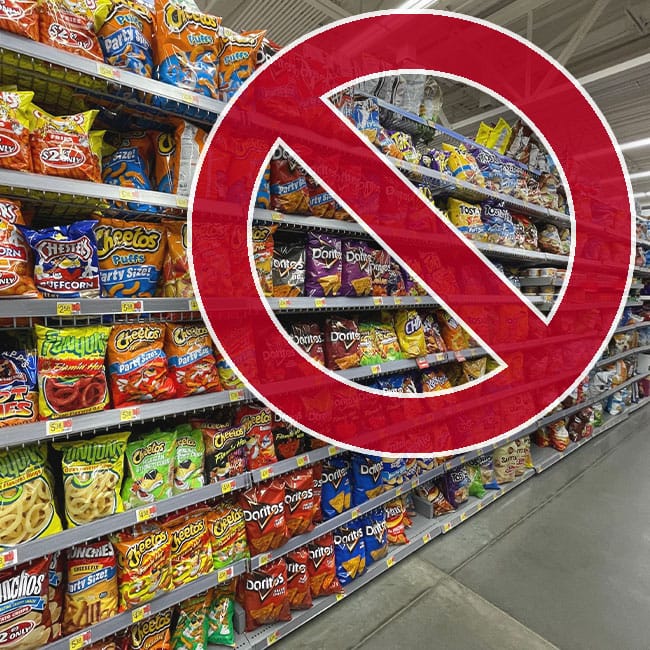Inflammation can lead to a range of health issues. On the short term side of things, it’s just plain painful, but when the problem becomes chronic, it may even result in serious disease. While inflammation can affect nearly every aspect of our health, one of the major factors it can play a role in is gut health. And oftentimes, it’s caused by the food you eat. That’s why if you struggle with digestive issues like chronic bloating, one of the first places you should look for the root of the problem is your diet.
To get down to the bottom of things and discover some of the worst foods that frequently lead to inflammation and bloating, we spoke to Dietitian Heidi Moretti MS, RD. She pointed out three major culprits: sugar, wheat, and legumes. Learn more below!


Sugary foods
It shouldn't come as a surprise to hear that sugar is bad for your overall health—we've all heard this our whole lives. However, it's impossible to talk about inflammatory foods without mentioning the fact that sugar and high fructose corn syrup can be detrimental to your gut health. "Sugar and high fructose corn syrup are very inflammatory foods that can also cause bloating and digestive issues such as irritable bowel syndrome," Moretti tells us, noting that these ingredients "can cause unwanted bacteria to overgrow and produce gas in the gut, causing bloating and distress." Yikes! Of course, cutting out all sugary can be extremely difficult (especially for those of us with a sweet tooth), but all in all, it's best to limit your intake as much as possible if you want to minimize digestive issues.

Wheat
Wheat is another major offender when it comes to inflammation and bloating—especially if you have a more sensitive gut. "This is because it can increase intestinal permeability, which triggers a threat response in the immune system, causing a cascade of inflammation, for sensitive people," Moretti explains. "The gut results of this inflammation are often gas, bloating, indigestion, and abnormal bowl movements in people who are sensitive to wheat and/or gluten." All of this considered, you may not need to cut out wheat and gluten if you find your body can handle and digest these ingredients just fine. Just be sure to pay attention to how you feel (especially when it comes to your gut) when you eat them, and make adjustments to your diet as necessary.

Legumes (beans)
It isn't too much of a shock to learn that legumes, or beans, can cause gas, but Moretti emphasizes the fact that they can be detrimental to your digestive system if not prepared properly. "This is because legumes contain anti-nutrients and proteins that can trigger an inflammatory immune response or indigestion in sensitive people or if the legumes aren't soaked and cooked well," she tells us. So, what is the right way to cook them? "Ideally, beans should be soaked, sprouted, and fermented to reduce these side effects," she instructs. However, preparing them this way won't necessarily do the trick. Moretti notes that you may have to cut beans out of your diet altogether: "Some very sensitive people should avoid legumes if these cooking methods don't help."
Of course, every body is unique—which means your diet should be personalized, as well. For this reason, your best bet is always to get to the root of your gut issues by speaking with your doctor. However, it can't hurt to cut out these foods and see if it makes a difference!


























